GoDaddy vs WordPress: Final verdict
GoDaddy and WordPress both offer robust platforms, but they cater to different user needs and preferences.
GoDaddy (Overall Grade: 7.5/10)
is a comprehensive platform that excels in providing a user-friendly experience, especially for beginners. It offers a range of services including domain registration, web hosting, and a straightforward website builder. GoDaddy is ideal for users looking for an all-in-one solution with integrated tools for ecommerce, marketing, and security. Its intuitive interface and extensive customer support make it a reliable choice for small businesses and individuals new to website creation.
WordPress (Overall Grade: 7.1/10)
, on the other hand, is an open-source content management system known for its extensive customization options and flexibility. It is best suited for users who require a high degree of creative control and are comfortable with a steeper learning curve. WordPress shines with its vast array of themes and plugins, making it a versatile choice for blogs, business sites, and online stores. Its strong community support and extensive learning resources are invaluable for users looking to build highly customized websites.

|

|
|
|---|---|---|
Design functionalities & templates |
8.0 |
9.0 |
Ease of use |
8.2 |
7.2 |
Ecommerce |
7.2 |
8.4 |
Website Editors |
6.7 |
8.5 |
Product testing options |
8.1 |
8.1 |
Price |
7.9 |
5.9 |
Hosting quality |
7.8 |
0 |
Website speed optimization |
7.6 |
6.5 |
Plugins and integrations |
7.3 |
8.8 |
Marketing features |
7.3 |
8.0 |
Customer support |
8.5 |
5.0 |
Security |
6.8 |
6.7 |
AI capabilities |
7.5 |
6.1 |
User Management |
7.3 |
8.8 |
Which one is the best for ecommerce: GoDaddy or WordPress?
 7.2
7.2
 8.4
8.4
Verdict
: WordPress, with its extensive customization options and powerful plugins like WooCommerce, is better suited for ecommerce compared to GoDaddy, which offers a more streamlined but less flexible solution.
GoDaddy
: GoDaddy provides a user-friendly experience with integrated payment processing and comprehensive tools for product and order management. It is ideal for users looking for simplicity and convenience. However, when comparing GoDaddy vs WordPress, GoDaddy’s ecommerce capabilities are more basic and may not meet the needs of larger or more complex online stores.
WordPress
: WordPress excels in ecommerce with its extensive customization options and a wide range of ecommerce themes and templates, thanks to plugins like WooCommerce. It is suitable for users who need a highly customizable and scalable ecommerce solution. However, it may require more technical knowledge to fully leverage its capabilities.
Which one is the best for informational and business websites?
 7.9
7.9
 9.2
9.2
Verdict
: WordPress is the superior choice for informational business websites due to its extensive customization options and robust plugin ecosystem. GoDaddy, while user-friendly, is more limited in terms of flexibility and advanced features.
GoDaddy
: GoDaddy offers a user-friendly platform with a drag-and-drop interface, making it accessible for beginners. It provides a range of templates and basic SEO tools, but its design capabilities and third-party integrations are more limited compared to WordPress. GoDaddy is ideal for users who need a straightforward, all-in-one solution for creating and managing their website.
WordPress
: WordPress excels with its vast array of themes and plugins, allowing for extensive customization and creative control. It is suitable for users who require a highly flexible platform that can be tailored to specific needs. WordPress’s open-source nature and large community support make it a powerful tool for building and managing complex informational websites. When comparing GoDaddy vs WordPress, WordPress stands out for its versatility and depth of features.
GoDaddy vs WordPress: Detailed comparison
Design functionalities & templates
Design FunctionalitiesRepresents how well each platform allows for creative design and customization of websites.Score Components:
- Template Variety (30%): Range and quality of design templates.
- Customization (30%): Flexibility and options for design alterations.
- User Interface (20%): Ease and intuitiveness of the design process.
- Responsiveness (10%): Adaptability to different devices and screen sizes.
- Innovation (10%): Unique design features and tools.
 8.0
8.0
 9.0
9.0
🏆
Winner: WordPress.
If you’re looking for a platform that offers more creative control, a wide array of design features, and extensive customization options, WordPress is the preferred choice.
GoDaddy provides an extensive collection of over 1500 website templates catering to diverse industries and design preferences. These templates cover business, ecommerce, creative, personal, and non-profit sectors, offering various styles such as modern, classic, bold, minimalist, and content-focused.
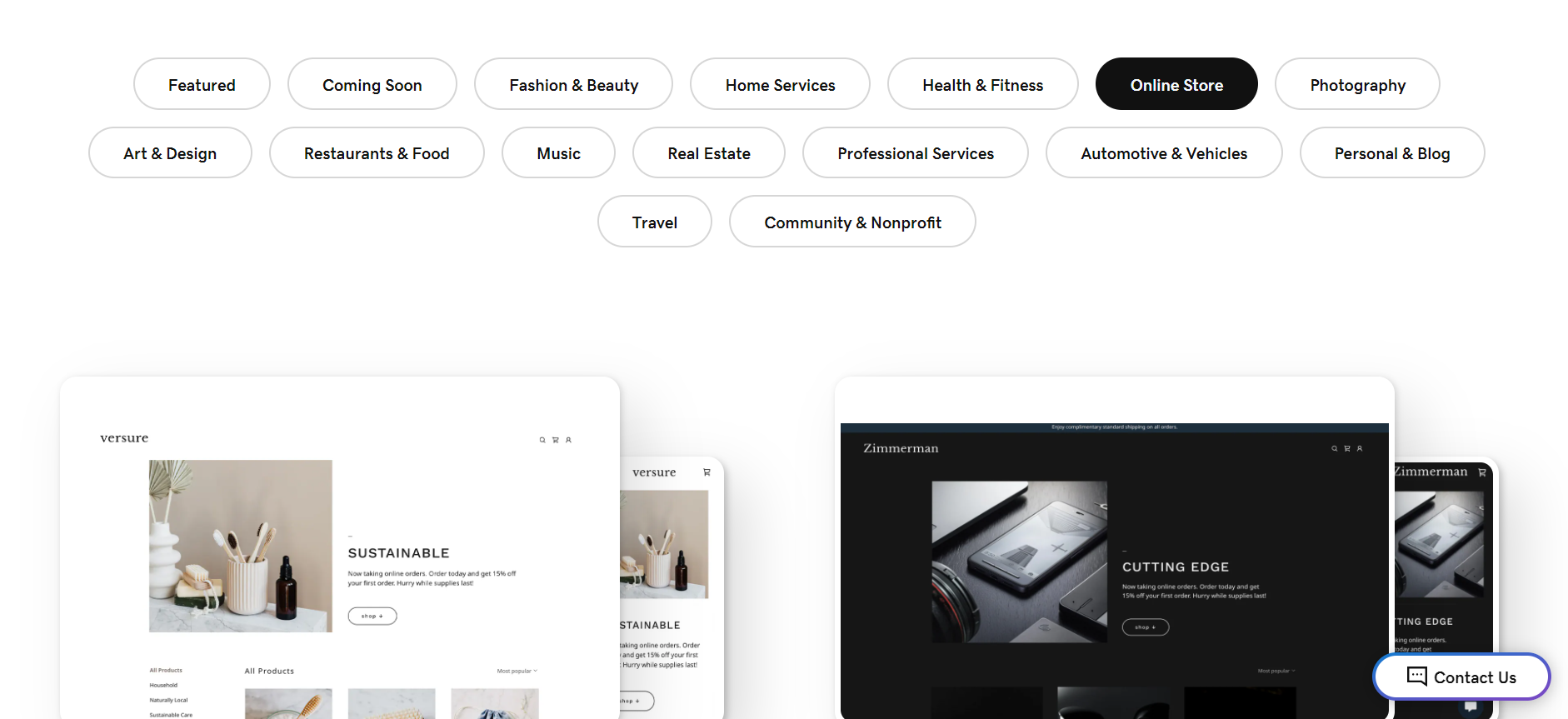

Compared to GoDaddy, WordPress offers an extensive variety of templates and designs, catering to a wide range of website types beyond just blogs or ecommerce. Its open-source nature allows for high customization and creative freedom, appealing to diverse user needs.
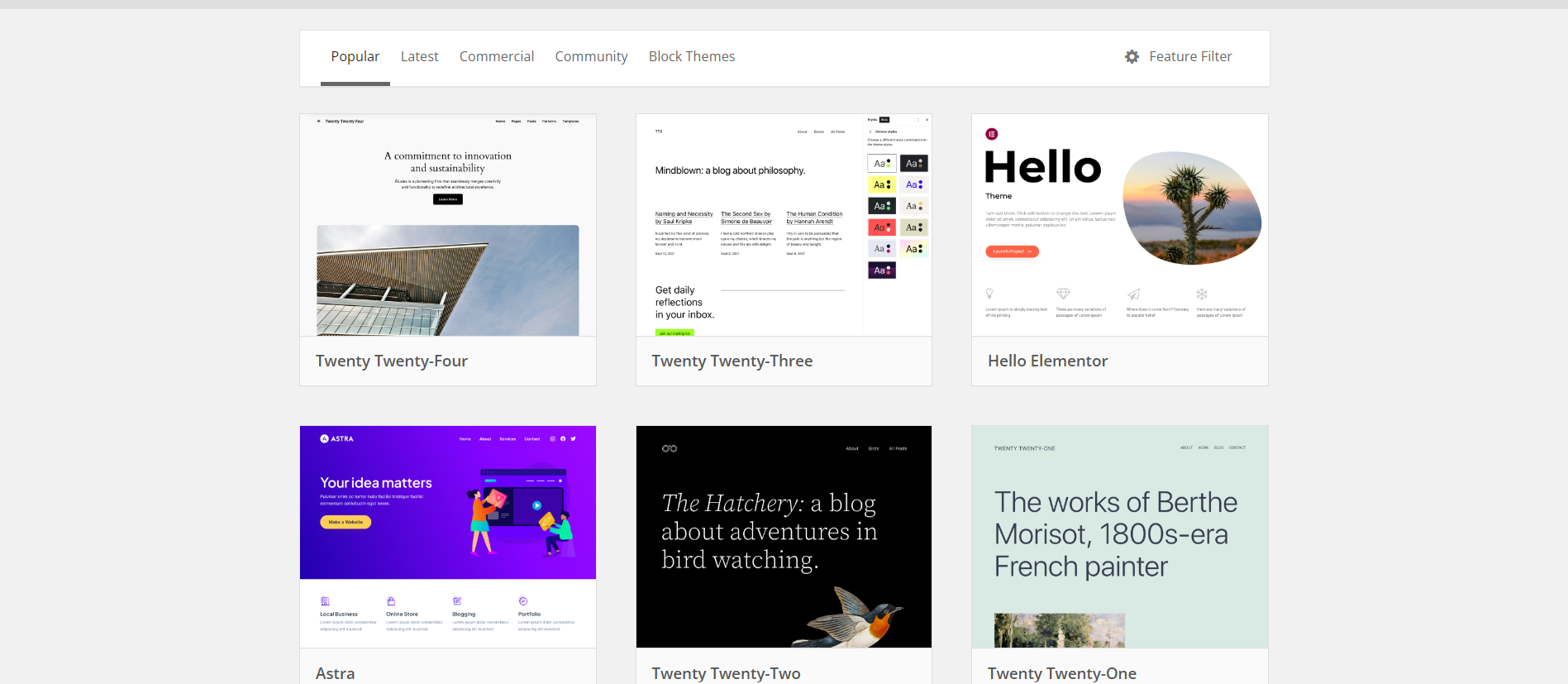
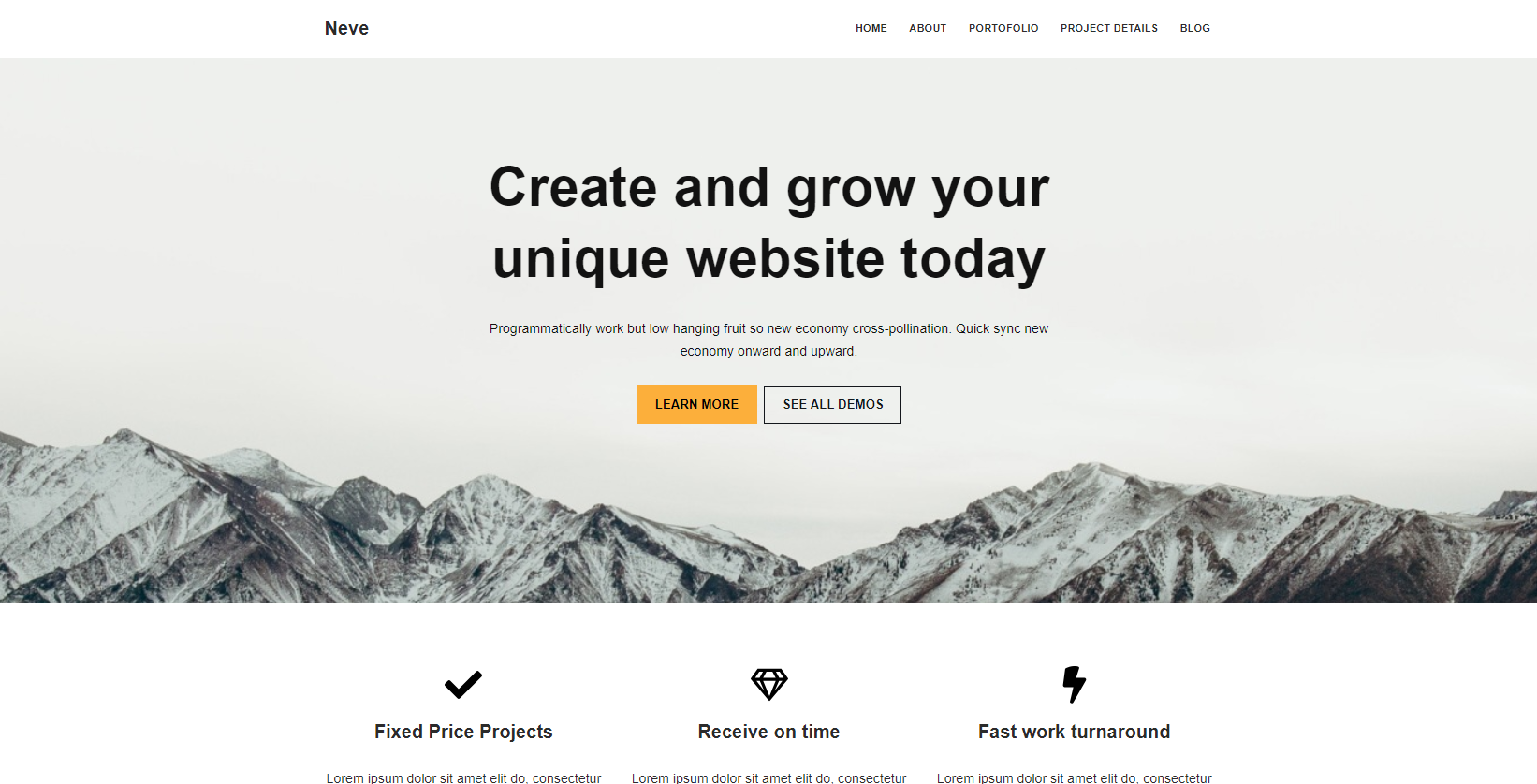
Get a head start on website creation with AI
Create a custom website tailored to your business needs 10X faster with 10Web AI Website Builder!
Ease of use
Ease of useReflects the platform’s overall user-friendliness.Score
Components:
- Learning curve (40%): Quickness and ease of getting started.
- Interface design (30%): Simplicity and intuitiveness of layout.
- User guidance (20%): Quality of tutorials and support.
- Flexibility (10%): Adaptability to various user skills.
 8.2
8.2
 7.2
7.2
🏆 Winner: GoDaddy
. With a score of 8.2, GoDaddy’s user-friendly platform is popular among beginners due to its intuitive features like a drag-and-drop interface, WYSIWYG editor, and mobile-responsive templates. WordPress, scoring 7.2, offers great flexibility and power, but it can be less intuitive for beginners compared to simpler website builders.
Learning Resources
🏆 Winner: WordPress
. While both platforms offer solid learning resources, WordPress is supported by a vast array of learning resources, known for both their availability and quality. These include detailed documentation, community forums, online tutorials, and courses offered by both WordPress and third-party providers.
For ecommerce
EcommerceMeasures the platform’s effectiveness in supporting online business activities.Score Components:
- Ecommerce themes and templates (20%): Variety and design of templates.
- Product management (25%): Ease of managing and organizing products.
- Payment options (25%): Variety and convenience of payment methods.
- Ecommerce features (20%): Features for managing an ecommerce store.
- Integration (10%): Compatibility with external e-commerce tools and services.
 7.2
7.2
 8.4
8.4
When it comes to ecommerce, WordPress, with a score of 8.4, outperforms GoDaddy, which has a score of 7.2. WordPress’s strength lies in its extensive customization options and a wide range of ecommerce themes and templates, thanks to plugins like WooCommerce. On the other hand, GoDaddy offers a user-friendly experience with integrated payment processing and comprehensive tools for product and order management.
 |
 |
|
|---|---|---|
Ecommerce themes and templates |
6.5 |
9.2 |
Product page customization |
6.0 |
9.0 |
Payment processing and commissions |
7.5 |
7.5 |
POS capabilities |
6.0 |
6.5 |
Payment gateways |
7.0 |
8.5 |
Product numbers |
7.0 |
7.0 |
Additional ecommerce features |
6.5 |
8.0 |
GoDaddy ecommerce features:
- Payment processing
- Shipping options
- SEO tools
- Email marketing features
- Social media integrations
- Detailed reports
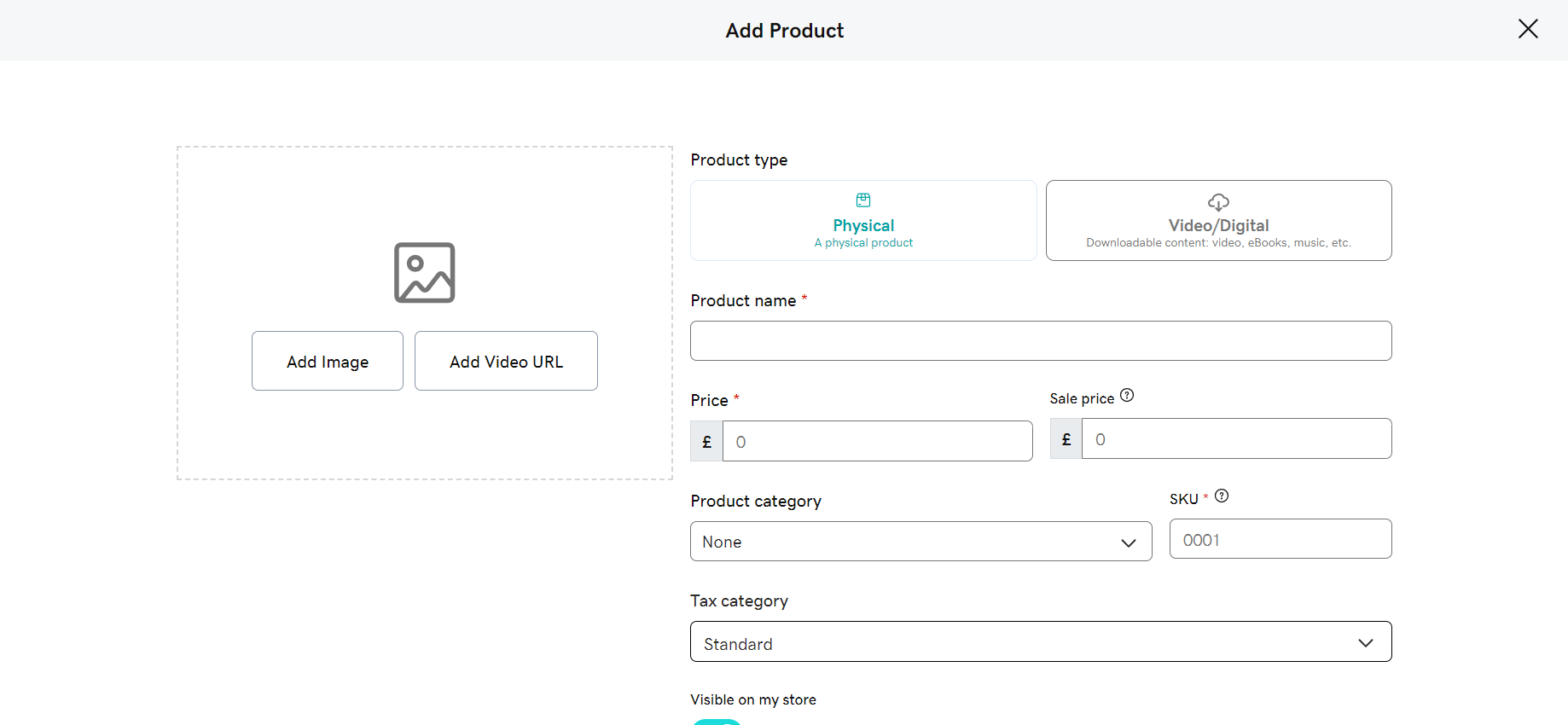
WordPress ecommerce features:
- WooCommerce Integration
- Multiple Payment Gateway Support
- Abandoned Cart Recovery
- Ecommerce Analytics
- SEO Optimization Tools
- Extensive Plugin Ecosystem
Ecommerce themes & templates
GoDaddy offers around 70-80 ecommerce themes that cover diverse industries and styles. While these themes are generally mobile-friendly with basic customization options, they may lack the niche variety and cutting-edge designs found on dedicated ecommerce platforms. On the other hand, WordPress offers hundreds to potentially thousands of ecommerce and WooCommerce specific themes and templates, both free and premium.
Product page customization
GoDaddy’s ecommerce platform offers users basic customization options like editing content, adding images, and adjusting layouts. For advanced customization, coding knowledge is required. On the other hand, WooCommerce on WordPress offers extensive customization for eCommerce product pages, balancing plugins, page builders, and custom coding.
Payment processing
GoDaddy Payments provides a versatile solution for online, in-person, and phone payments with a tiered pricing structure. WordPress doesn’t handle payments directly but offers plugin options for payment processing. Popular gateways include PayPal, Stripe, Authorize.Net, and Square. Choose a gateway based on transaction volume, currencies, fees, and security. Plugins integrate gateways with WooCommerce for a user-friendly setup.
Website Editors
Website EditorsEvaluates the platforms’ website building and editing capabilities.Score Components:
- Customization tools (40%): Range and power of editing features.
- Editor usability (30%): User experience within the editor.
- Design flexibility (20%): Freedom in layout and design changes.
- Update and maintenance ease (10%): Simplicity of updating and maintaining the site.
 6.7
6.7
 8.5
8.5
🏆
Winner: WordPress
. WordPress, with a score of 8.5, offers a user-friendly interface with block-based editing, extensive styles customization, template management, page editing/creation, distraction-free modes, versatile saving options, and accessibility for users of varying skill levels. It also provides a WYSIWYG (What You See Is What You Get) interface, and allows for HTML and CSS customization, block-based design flexibility, comprehensive template editing, API access, and plugin integration.
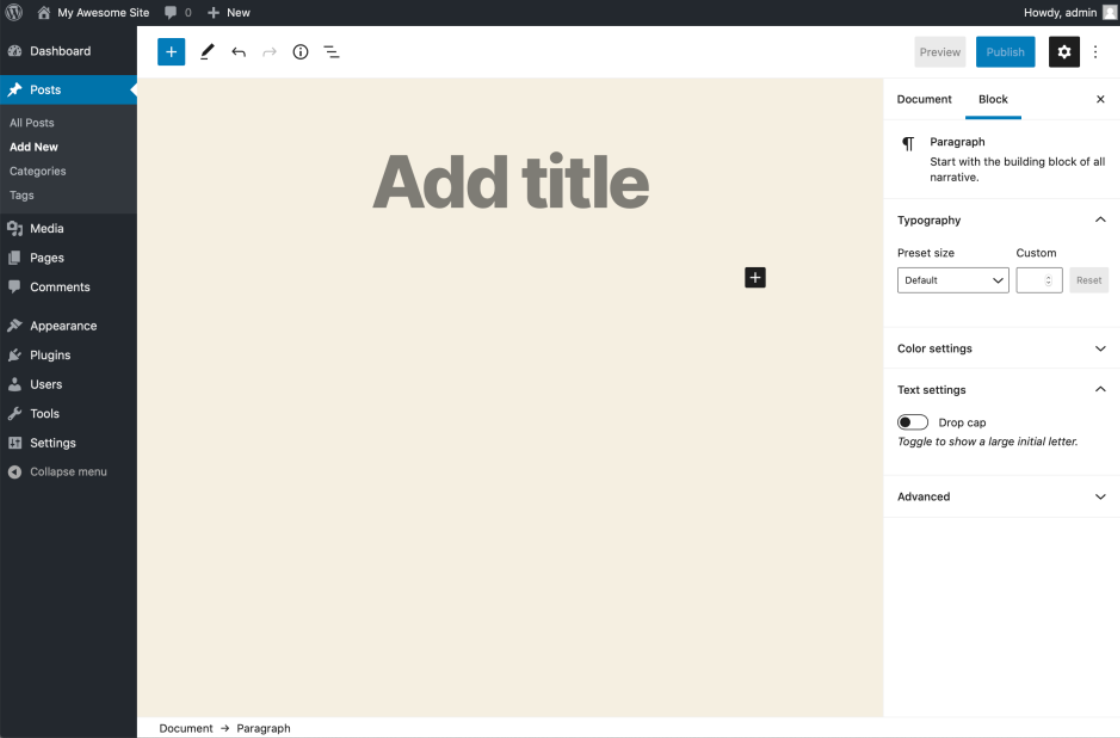
GoDaddy’s editor, scoring 6.7, is a user-friendly drag-and-drop tool enabling website creation without coding. It offers pre-designed templates, a mobile-friendly interface, basic SEO tools, and ecommerce integration. However, it has some design limitations, basic features compared to dedicated platforms, a learning curve for extensive use, and potentially limited third-party app integrations.
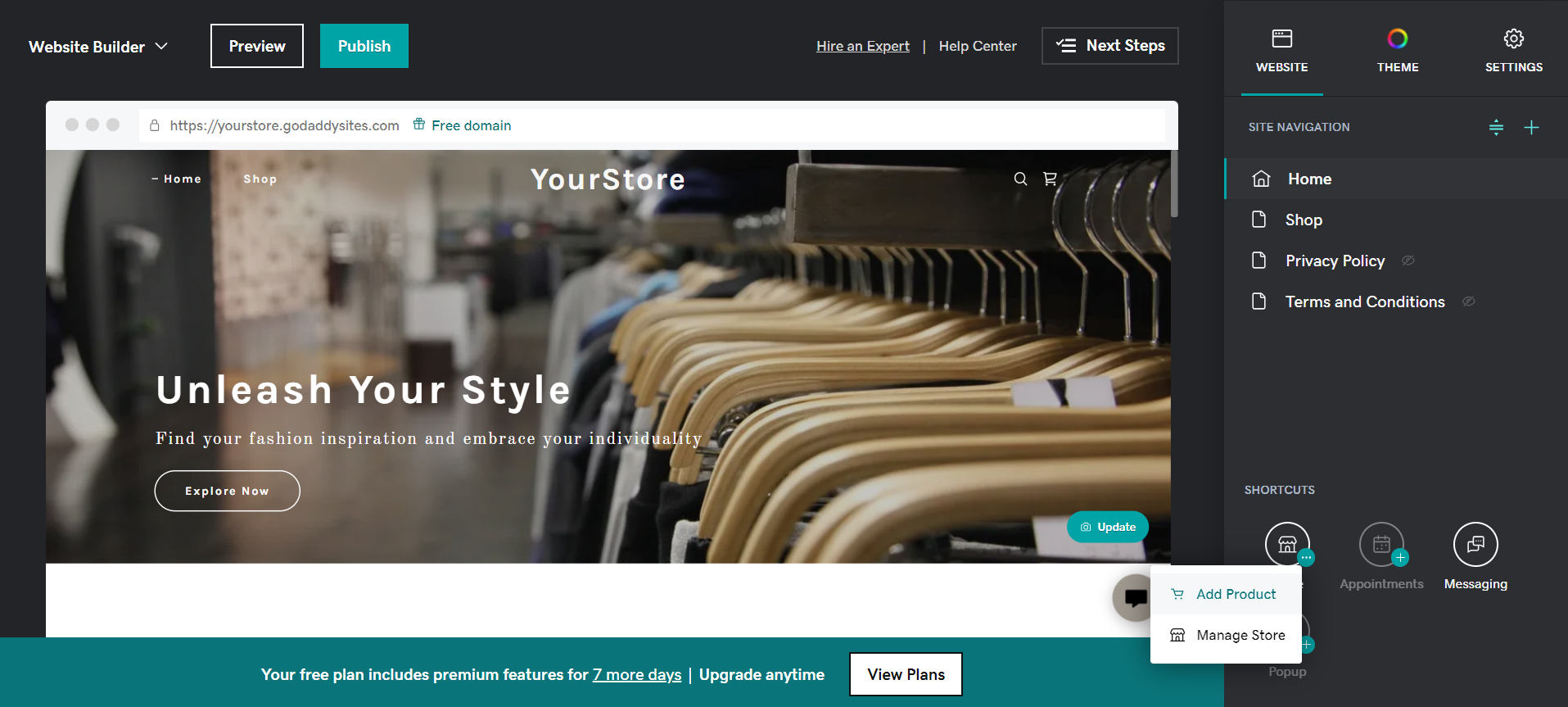
Mobile editor/app
 5.5
5.5
 8.1
8.1
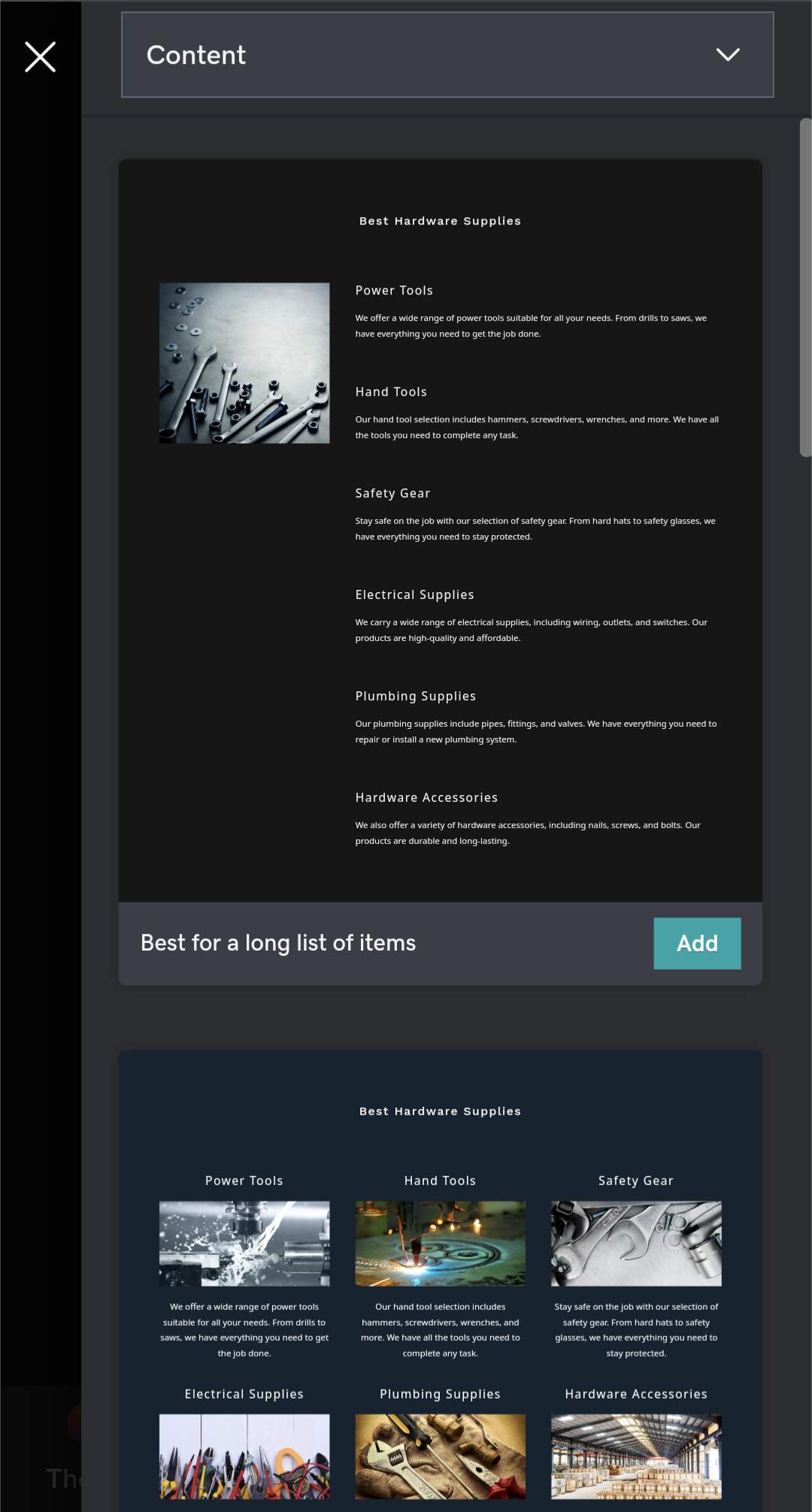
🏆
Winner: WordPress
. Both GoDaddy and WordPress offer mobile editing capabilities, but their approaches and features differ. GoDaddy doesn’t have a dedicated mobile app for editing websites, but users can access the website builder through a mobile web browser. While this offers some flexibility, the experience might be slightly more constrained on a smaller screen.
On the other hand, WordPress has a mobile editor app that allows users to manage their website on the go. You can create and edit posts, manage comments, schedule content, and analyze website traffic from your phone or tablet. While it offers convenience and basic functionality, it has some limitations compared to the web-based editor, including fewer advanced options, restricted code access, and limited design customization.
In summary, WordPress receives a higher rating due to its dedicated mobile app and the ability to manage your website on the go, while GoDaddy’s mobile editing capabilities are more limited and constrained to a mobile web browser.
Product testing options
Product Testing OptionsAssesses the options for trying out platform features before commitment.Score Components:
- Trial quality (40%): Extent and usefulness of the trial or free version.
- Feature accessibility (30%): How many features are available to test.
- Trial duration (20%): Length of the trial period.
- Ease of transition (10%): Smoothness of moving from trial to paid plans.
 8.1
8.1
 8.1
8.1
Overall Result
:
GoDaddy wins
. Both GoDaddy and WordPress score 8.1, but GoDaddy offers more flexibility in product testing. GoDaddy provides a free version and a 30-day money-back guarantee for all paid plans, allowing users to explore all features and make a decision within the refund window. On the other hand, WordPress, being an open-source CMS, offers a free version but does not provide a trial version or the possibility to test premium features.
 |
 |
|
|---|---|---|
Free Plan |
Yes | Yes (open source software) |
Trial Duration |
No (30-day money-back guarantee) |
No |
Testing Premium Features |
Yes |
No |
Price
PriceLooks at the cost-effectiveness and value for money of each platform.Score Components:
- Plan value (40%): What each pricing tier offers.
- Transparency and clarity (30%): Clearness of pricing structures.
- Flexibility of plans (20%): Range of options to suit different budgets.
- Hidden costs (10%): Additional expenses not included in the plan.
 7.9
7.9
 5.9
5.9
GoDaddy offers a clear pricing structure with different plans and features, while WordPress, being an open-source software, is free but requires separate purchases for domain, web hosting, and website builder subscriptions.

|

|
|
|---|---|---|
Free |
Free ($0/month): Build a basic website with limited templates, storage, and features. Ideal for testing the platform. |
Free Plan ($0/month): WordPress is open source software that is free. WordPress does not provide hosting services; so, it is necessary to purchase a domain, web hosting, and website builder subscriptions separately. While WordPress lacks built-in ecommerce, plugins like WooCommerce offer a solution. WordPress offers an extensive variety of templates and designs. WordPress lacks a built-in AI-assisted builder, but its open-source nature allows for an ecosystem of plugins and themes incorporating AI for website building. |
$0-$8 |
Basic ($5.99/month): More templates, custom domain support, email marketing, SEO tools, social media integrations, analytics. Ideal for personal websites and small businesses. Value for price: 6.5 |
No offering at this amount. |
$8-$10 |
Premium ($9.99/month): All Basic features + blog, ecommerce with product listings and payments, advanced marketing tools, and analytics. Ideal for businesses with online sales or growing web presence. Value for price: 8.0 |
No offering at this amount. |
$10-$18 |
Commerce ($15.99/month): All Premium features + advanced ecommerce tools like cart recovery, discounts, reviews, memberships, and unlimited products. Ideal for businesses with significant online sales and complex product offerings. Value for price: 9.0 |
No offering at this amount. |
$18+ |
Pro ($19.99/month): All Commerce features + priority support, higher bandwidth, website security, and CDN. Ideal for businesses with high traffic and critical online presence. Value for price: 9.5 |
No offering at this amount. |
location. As a result in rare cases the prices displayed here can differ from the ones you see on their
websites.
Hosting quality
Hosting
qualityExamines the reliability and performance of the hosting solutions.Score Components:
- Uptime (40%): Consistency and reliability of website availability.
- Speed (30%): Loading times and performance.
- Bandwidth and storage (20%): Sufficiency of resources provided.
- Data centers (10%): Quality and distribution of hosting infrastructure.
 7.8
7.8
 0
0
🏆
Winner: GoDaddy
GoDaddy offers a range of hosting services, including shared hosting, VPS hosting, dedicated hosting, and WordPress hosting. It guarantees 99.9% uptime and has data centers in the USA, France, Germany, and the UK. On the other hand, WordPress does not directly provide hosting services. The uptime and data center locations depend on the chosen hosting provider.
 |
 |
|
|---|---|---|
Do they offer hosting? |
Yes, included in all paid plans |
No, WordPress itself does not directly provide hosting services |
Data Centers: |
Data Centers in USA, France, Germany and UK Cloud Services Through AWS |
Data centers depend on hosting providers |
Type of hosting: |
Shared Hosting, VPS Hosting, Dedicated, WordPress Hosting |
WordPress itself isn’t a hosting platform, there are various options when choosing the type of hosting for websites built with WordPress, such as: Shared Hosting, VPS Hosting, Dedicated Server Hosting, Managed WordPress Hosting, Cloud Hosting |
Uptime: |
99.9% |
Uptime & uptime guarantee depends on hosting provider |
Uptime Guarantee: |
Yes, 99.9% |
Depends on hosting provider |
Website Speed Optimization
Website Speed OptimizationEvaluates optimization of website loading timesScore Components:
- PageSpeed Score (30%): Google’s score indicating performance optimization.
- Loading Time (30%): The average time until a website is fully interactive.
- Mobile Optimization (15%): Optimization effectiveness for mobile devices.
- Resource Optimization (15%): Optimizing images, scripts, and other heavy resources.
- CDN Usage (10%): Use of CDN to enhance speed across geolocations.
 7.6
7.6
 6.5
6.5
🏆 Winner: GoDaddy
Both GoDaddy and WordPress place a high priority on website performance and page speed, with GoDaddy focusing on CDN, automatic maintenance, and resource optimization, and WordPress providing valuable resources for enhancing website’s Core Web Vitals. However, GoDaddy gets a slight edge when it comes to website speed optimization.
 |
 |
|
|---|---|---|
Focus |
CDN, Automatic Maintenance, Resource Optimization |
Core Web Vitals, WP Rocket, Hummingbird, AMP |
Performance Tools |
GoDaddy Website Builder, GoDaddy Hosting |
WordPress CMS, WordPress Plugins |
Key Strategies |
CDN, Automatic Maintenance, Resource Optimization |
WordPress provides resources for optimization |
Load Times |
Shared Hosting: 2-4 seconds VPS Hosting: 1-2 seconds Dedicated Server: 0.5-1.5 seconds |
Varies widely, dependent on optimization |
Page Speed Scores Range |
Shared Hosting: 50-70/100 VPS Hosting: 70-85/100 Dedicated Server: 80-95/100 |
Scores vary; influenced by apps, images |
Core Web Vitals Improvement |
Infrastructure upgrades, caching mechanisms, image optimization tools, automatic minification of code files |
Analyze CWV, choose a reliable host, optimize images, minimize plugins, use lazy loading, employ a CDN |
GoDaddy has enhanced its platform through infrastructure upgrades, including improved server infrastructure and data centers, resulting in faster loading times. Additionally, the implementation of effective caching mechanisms, image optimization tools, and automatic minification of code files contribute to a smoother user experience and improved Core Web Vital metrics. The website builder features optimized templates and code structures for efficient rendering, further enhancing overall performance.
On the other hand, WordPress provides valuable resources for enhancing your website’s Core Web Vitals (CWV): analyze CWV, choose a reliable host, optimize images, minimize plugins, use lazy loading, and employ a CDN. Explore tools like Core Web Vitals, WP Rocket, Hummingbird, and consider AMP for mobile speed. However, the load times and PageSpeed scores can vary widely, depending on the optimization.
Get a head start on website creation with AI
Create a custom website tailored to your business needs 10X faster with 10Web AI Website Builder!
Plugins and integrations
Plugins and integrationsMeasures the range and effectiveness of additional plugins and integrations.Score Components:
- Variety of options (40%): Range of available add-ons.
- Integration smoothness (30%): Ease of integrating plugins into the site.
- Quality of plugins (20%): Functionality and reliability of the options.
- Custom integration capabilities (10%): Support for custom or third-party integrations.
 7.3
7.3
 8.8
8.8
🏆 Winner: WordPress.
With a score of 8.8, WordPress offers over 60,000 free plugins in its official directory, and thousands of premium plugins from third-party companies and developers. This vast array of plugins extends WordPress’s functionality across various domains, including advanced ecommerce tools, SEO optimization, social media integration, email marketing, website analytics, appointment scheduling, customer support, enhanced media galleries, blogging features, custom forms and surveys, diverse payment processing options, website localization, improved security measures, and the addition of custom widgets.
GoDaddy, scoring 7.3, offers a more focused set of built-in features with the option to extend functionalities through limited plugins. However, it does provide access to the extensive WordPress plugin repository for users of its Managed and Unmanaged WordPress Hosting services. Despite this, the overall number of plugins and the extent of functionality they provide is less than that of WordPress.
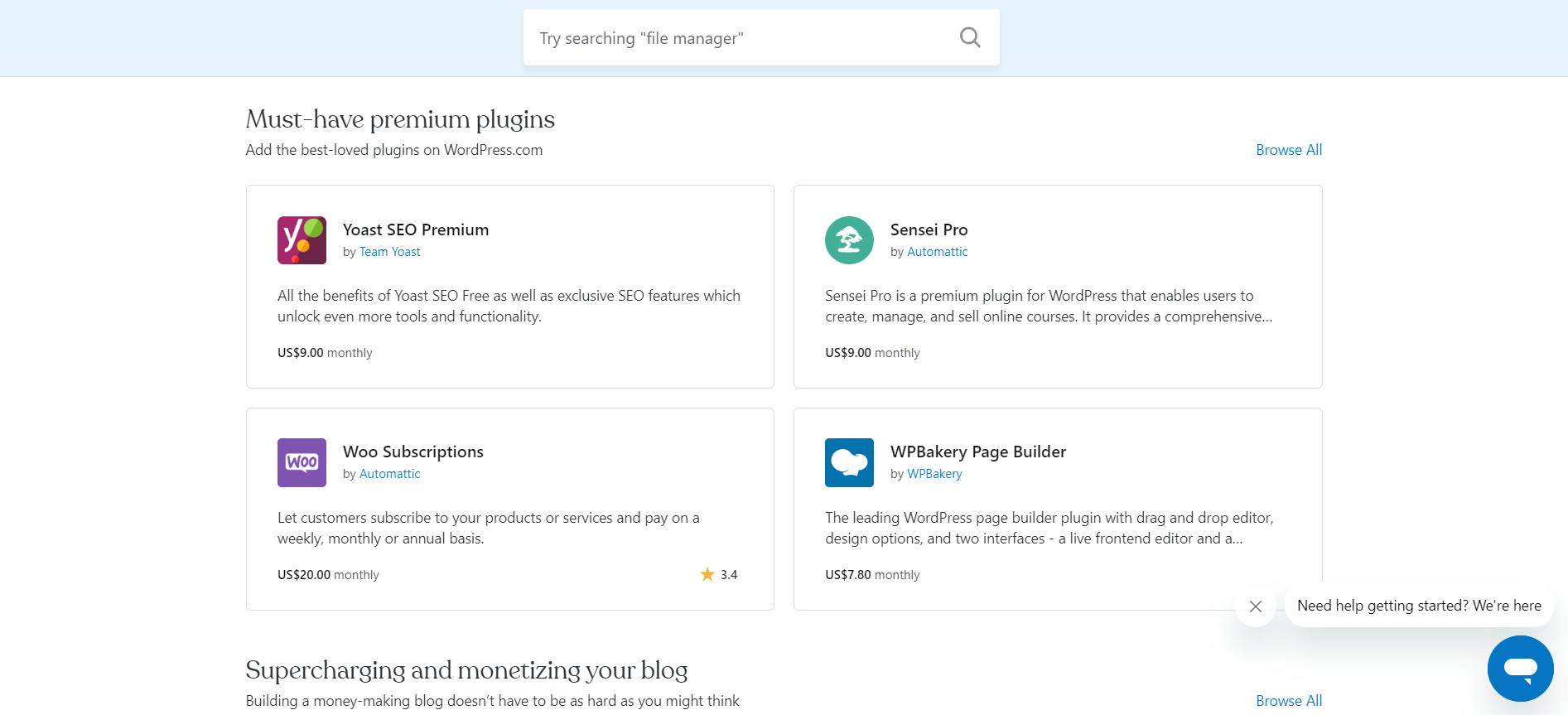
Marketing Features
Design FunctionalitiesRepresents how well each platform allows for creative design and customization of websites.Score Components:
- Template Variety (30%): Range and quality of design templates.
- Customization (30%): Flexibility and options for design alterations.
- User Interface (20%): Ease and intuitiveness of the design process.
- Responsiveness (10%): Adaptability to different devices and screen sizes.
- Innovation (10%): Unique design features and tools.
 7.3
7.3
 8.0
8.0
🏆
Overall Winner: WordPress
. WordPress stands out for its extensive customization options through plugins, making it suitable for a wide range of marketing strategies. GoDaddy, on the other hand, offers a more streamlined and integrated approach, ideal for users looking for simplicity and convenience.
 |
 |
|
|---|---|---|
SEO Tools |
||
Email Marketing |
||
Blogging |
||
Social Media Integration |
Tools for social media linking and content sharing |
Plugins for direct linking, automatic posting, and social feeds display |
Analytics and Reporting |
Basic analytics with more detailed insights on higher plans |
In-depth analysis via plugins like Google Analytics for WordPress |
Ads and Promotions |
Features to create and track online ads, including Google Ads |
Support for Google Ads and ad management through various plugins |
Customer Support
Customer supportEvaluates the quality and availability of support options.Score Components:
- Response time (40%): Speed of support responses.
- Support quality (30%): Effectiveness and helpfulness of the support.
- Availability (20%): Range of support channels (phone, chat, email).
- Resource richness (10%): Quality of self-help and educational materials.
 8.5
8.5
 5.0
5.0
🏆 Winner: GoDaddy
. In the GoDaddy vs WordPress comparison, GoDaddy takes the lead with its comprehensive customer support services. GoDaddy offers 24/7 phone support in multiple languages, live chat, and email assistance, ensuring users can get help whenever they need it. Additionally, GoDaddy’s community forum and social media channels provide further support options, making it a robust choice for users seeking reliable assistance.
WordPress, on the other hand, does not have a dedicated customer support team due to its open-source nature. Users must rely on community forums, the WordPress codex, and support from hosting providers or plugin and theme developers. While these resources can be helpful, they may not provide the immediate and personalized support that some users require, making GoDaddy the superior option in this category.
Security
SecurityLooks at the platforms’ security measures and data protection.Score Components:
- Data protection (40%): Safeguards for user and customer data.
- SSL and encryption (30%): Implementation of secure connections.
- Compliance (20%): Adherence to industry security standards.
- Regular updates (10%): Frequency of security updates and patches.
 6.8
6.8
 6.7
6.7
🏆
Winner: GoDaddy
. GoDaddy offers robust website security with plans that include features like SSL certificates, malware scanning, and web application firewalls. Users can choose plans tailored to their needs, from basic protection to advanced solutions with DDoS protection and CDN. Additional security features, including SSL certificates, DDoS protection, and vulnerability scanning, coupled with automatic website backups, ensure a comprehensive defense against online threats.
WordPress, on the other hand, provides numerous functionalities and resources to enhance website security effectively. Users can utilize multiple plugins to bolster security, such as those for site backups, monitoring, malware scanning, user activity tracking, permission control, and spam protection tools. However, the approach to private data storage and protection can vary depending on the hosting provider.
AI Capabilities
AI capabilitiesMeasures the effectiveness of AI-driven features and tools.Score Components:
- Automation efficiency (40%): Impact of AI on streamlining processes.
- Personalization (30%): AI-driven customization for users or customers.
- AI-Assisted design (20%): Role of AI in website design and functionality.
- Data analysis (10%): Use of AI in interpreting user data and analytics.
 7.5
7.5
 6.1
6.1
 |
 |
|
|---|---|---|
AI Builder |
AI Site Builder and Zita plugins offer AI-assisted building |
|
AI Ecommerce features |
AI-generated product descriptions, customer service tool, and digital ad creation |
AI plugins like Conversios, Ochatbot, AI Power, GetGenie, Woowoo, WooCommerce Multilingual, and SEO plugins such as Rank Math and Yoast SEO |
AI Content Generation |
AI-generated product descriptions, customer service messages, and social media ads |
AI Engine, GetGenie for content writing, and AI Power: Complete AI Pack for various AI-powered features |
🏆 Winner: GoDaddy
. GoDaddy’s AI capabilities, particularly in eCommerce and content generation, are designed to help small businesses enhance their online presence and operations efficiently. These features include AI-generated product descriptions, a customer service tool that summarizes conversations and suggests responses, and digital ad creation for platforms like Instagram and Facebook.
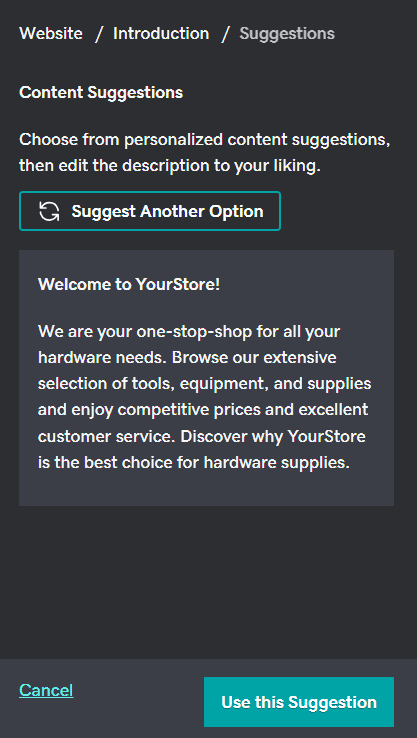
WordPress, with a score of 6.1, lacks a built-in AI-assisted builder and AI eCommerce features, but its open-source nature allows for an ecosystem of AI plugins for website building and specific tasks. While WordPress’s AI is powerful, it is more plugin-dependent compared to GoDaddy’s integrated AI.
User Management
User ManagementAssesses the platforms’ capabilities in managing user roles, permissions, and accessibility.Score Components:
- Role Customization (40%): Flexibility in creating and defining user roles and
permissions. - Ease of Management (30%): User interface and tools for managing users.
- Access Control (20%): Effectiveness of access control measures for different user
levels. - Scalability (10%): Ability to manage a growing number of users efficiently.
 7.3
7.3
 8.8
8.8
🏆 Winner: WordPress
. Both GoDaddy and WordPress offer different approaches to user management.
- GoDaddy’s number of users who can edit a website varies based on the hosting plan and website building tool. For Website Builder (GoCentral and Websites + Marketing), the free plan permits one user, while Deluxe and Ultimate plans allow up to five users with full editing permissions. In WordPress Hosting, there’s default support for unlimited users, each with customizable permission levels controlled through the WordPress dashboard.
- WordPress editing access depends on user roles and additional controls. User roles, ranging from Super Admin to Subscriber, dictate the level of permissions, while plugins and controls such as role management plugins and revision control offer further customization for specific editing rights and collaboration.
GoDaddy User Roles and Access Levels:
| Role | Description | Access Highlights |
|---|---|---|
| Account Holder | The primary owner of the GoDaddy Website Builder account. | Full access to all website builder features, domain management, hosting settings, and account settings. |
| Delegate Access | Users granted permission by the account holder to access specific parts of the GoDaddy account. | Can be given varying levels of access, from managing domains and products to making purchases on behalf of the account holder. |
| Website Editor | Users with permissions to edit and update the website through the Website Builder interface. | Can customize the website, add or edit sections (e.g., image galleries, menus), and update content. |
| Online Store Manager | Specifically for websites with e-commerce capabilities, managing product listings, orders, and payments. | Access to manage the online store, including product listings, coupons, shopping cart, shipping, and payments. |
WordPress User Roles and Access Levels:
| Role | Description | Access Highlights |
|---|---|---|
| Super Admin | Manages the entire network in WordPress Multisite. | Network admin, manage sites, users, plugins, themes. |
| Administrator | Full access within a single site. | Manage plugins, themes, users, all posts/pages. |
| Editor | Manages and publishes content, including others’ posts. | Edit/publish all posts, manage comments, categories. |
| Author | Publishes and manages their own posts. | Write, edit, publish own posts, upload files. |
| Contributor | Writes and edits their own posts but cannot publish. | Write, edit own posts (no file uploads or publishing). |
Additional Features
 |
 |
|
|---|---|---|
SSL Certificate |
||
Custom Domain |
||
Free Custom Domain Included |
||
International Domains |
||
Mobile Responsive |
||
Page Speed |
||
Website Builder Mobile App |
||
Convert a Website To An App |
||
Website Analytics |
||
Multilingual Sites |
||
Multiple Users |
GoDaddy vs WordPress: User Feedback
Users generally praise GoDaddy for its affordability, reliability, and user-friendly interface, particularly in domain registration and hosting services. However, concerns include occasional interface changes, perceived slowness in website hosting, and dissatisfaction with pricing increases.
WordPress receives praise for its user-friendliness, cost-effectiveness, extensive themes and plugins, customization options, and supportive community. However, users mention technical challenges, security concerns, a learning curve, and a lack of direct support. Overall, it remains a widely used and versatile platform, especially beneficial for startups and small businesses.
The making of this blog
We followed a clear, step-by-step process to write and research this article.
GoDaddy vs WordPress: FAQ
Which platform is better for beginners, GoDaddy or WordPress?
Can I use both GoDaddy and WordPress for ecommerce?
How do GoDaddy and WordPress differ in terms of customization and design flexibility?
What are the major differences in pricing between GoDaddy and WordPress?
Which platform offers better support, GoDaddy or WordPress?









